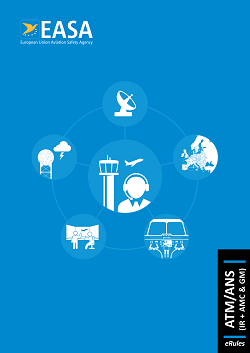ATSEP.OR.300 Competence assessment — General
Regulation (EU) 2017/373
A service provider shall ensure that ATSEP:
(a) have been assessed as competent before performing their duties;
(b) are subject to ongoing competence assessment in accordance with point ATSEP.OR.305.
GM1 ATSEP.OR.300(a) Competence assessment — General
ED Decision 2017/001/R
MEANING
‘Competence’ is understood as a situation where ATSEP possess the required level of knowledge, technical and behavioural skills and experience, and language proficiency when required, in order to be authorised to perform duties on the system and equipment they are competent to work on.
ATSEP.OR.305 Assessment of initial and ongoing competence
Regulation (EU) 2017/373
A service provider employing ATSEP shall:
(a) establish, implement and document processes for:
(1) assessing the initial and ongoing competence of ATSEP;
(2) addressing a failure or degradation of ATSEP competence, including an appeal process;
(3) ensuring the supervision of personnel who have not been assessed as competent;
(b) define the following criteria against which initial and ongoing competence shall be assessed:
(1) technical skills;
(2) behavioural skills;
(3) knowledge.
GM1 ATSEP.OR.305(a)(1) Assessment of initial and ongoing competence
ED Decision 2017/001/R
If the competence assessment is done by the same person training the ATSEP learner during the S/E training phase, the service provider should have in place a process to reduce biases.
GM1 ATSEP.OR.305(a)(3) Assessment of initial and ongoing competence
ED Decision 2017/001/R
SUPERVISION OF NON-COMPETENT PERSONNEL
Supervision of personnel for lack of competence may be necessary due to a number of circumstances including but not restricted to:
(a) the ATSEP still being trained;
(b) the ATSEP undergoing remedial training due to loss of competence; and
(c) the ATSEP having lost competence due to extended absence from tasks that require competence.
GM1 ATSEP.OR.305(b)(2) Assessment of initial and ongoing competence
ED Decision 2017/001/R
Behavioural skills are non-technical skills and attitudes that ATSEP need to perform effectively. Examples of potential behavioural skills criteria related to initial and ongoing competence are:
(a) cooperation within a team;
(b) attitudes towards safety and security;
(c) flexibility;
(d) analytical thinking; and
(e) ability to communicate effectively.
